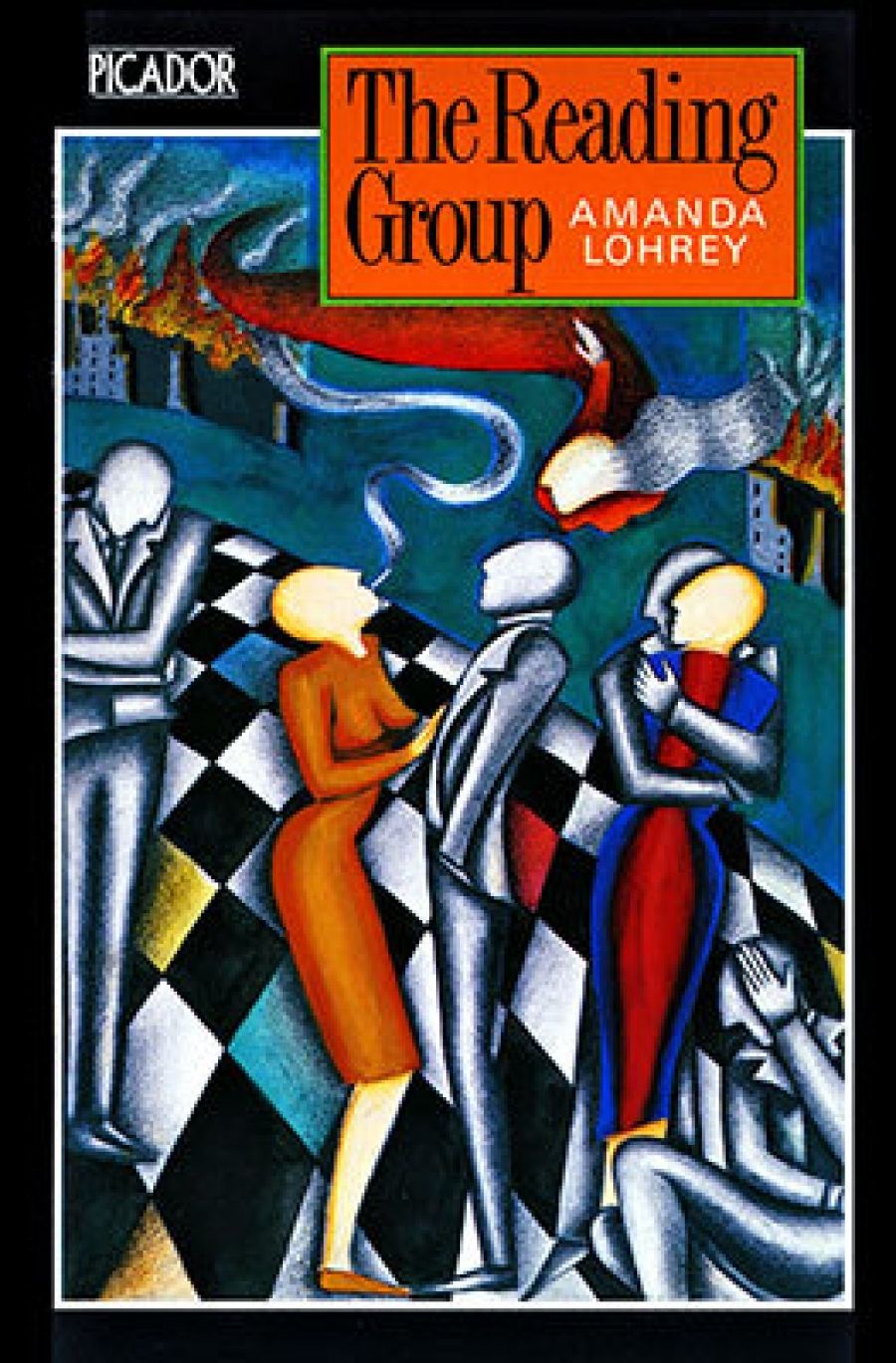
- Free Article: No
- Contents Category: Australian Fiction
- Review Article: Yes
- Article Title: Nostalgia for old truths
- Online Only: No
- Custom Highlight Text:
Do people still have reading groups? I suppose they do. I wonder what people in them read these days. Foucault? No, that’s surely passe. Do they have reading groups about novels which read novels about reading groups which don’t read novels? Perhaps. And would that qualify as meta-literature about meta-theory? Probably yes, especially if you were in a post-Foucault reading group about novels. I’m a pre rather than post person myself:
When I was ‘younger, and less cynical’, like Lohrey’s characters, reading groups gathered in dingy terrace houses at night to wade through a suitably weighty tome of Grand Social Theory. Marx’s Capital was always a favourite. Young aspiring male intellectuals, accompanied by transient and sometimes bewildered female companions, sparred with one another until alcohol or other substances opened a trail to the record player and another favourite game of one-upmanship, ‘have you heard … ’ rather than ‘have you read … ’ More rigorous groups were dry, or so I’m told.
- Book 1 Title: The Reading Group
- Book 1 Biblio: Picador, $11.95, 256 pp
Sometimes they had the air of Bunuel’s Exterminating Angel, sans bijoux. At others, the conspiratorial purpose of Fahrenheit 451. And of course, they were, as for Lohrey’s characters, an ‘outlet for … frustration’, as well as unstructured group therapy. People searching for themselves as well as Truth.
There is probably a lot an insightful novelist could draw out of a reading group. Lohrey’s book doesn’t, but then it isn’t a book about a reading group. It’s about people who were in a reading group, are no longer young and are now cynical and growing apart from one another. A thoroughly uninteresting bunch, and I thank my lucky stars that I was in reading groups with people who have remained interesting.
Having ploughed through this book twice – Marx was better, and easier the second time; probably funnier too – I find myself genuinely puzzled by why someone would spend time writing a novel about such a dull group of people. But maybe I missed the point and should register with a novel-reading group.
In some ways it is a book about unfulfilled lives and unconsummated gestures or actions, but to what end? (Such an old-fashioned question!) To be told by the book’s resident narcissistic hedonist that even a utopia of the present, let alone the future, is always incomplete? One can be spared such cliches, but there are still more in the book.
Bushfires lick menacingly at the edge of the city, a conservative nationalism gathers strength, a formerly progressive political party verges on passing emergency legislation, Renata (companion to an ageing academic radical) almost goes to bed with a visiting international leftist poet but is given a poem instead, which is ‘a consummation of sorts’, and so on. At times I was distantly reminded of Margaret Atwood, whose novels can teeter on pandemonium, but Lohrey’s is without the wit and the craft.
The chapters are delivered in staccato instalments, often introducing new characters or ideas. But the reader has to work too hard (speaking as a leisure reader) to reconstruct the book’s architecture. Its opening pages, for example, chop and change only to settle on a nicely written farewell dinner for an old parliamentary trooper. But one can hardly recommend that readers rip out the first fifteen pages of their brand-new book before beginning, or selected pages thereafter.
The book is set in Australia, but the city and the political parties have been fictionalised. Is the author straining towards some statement about the very essence of our times from which we would be distracted if it were set in Canberra or Sydney? The contrivance distracted and annoyed me and indicated a shallow rather than a profound grasp of the human political landscape of Australia.


Comments powered by CComment